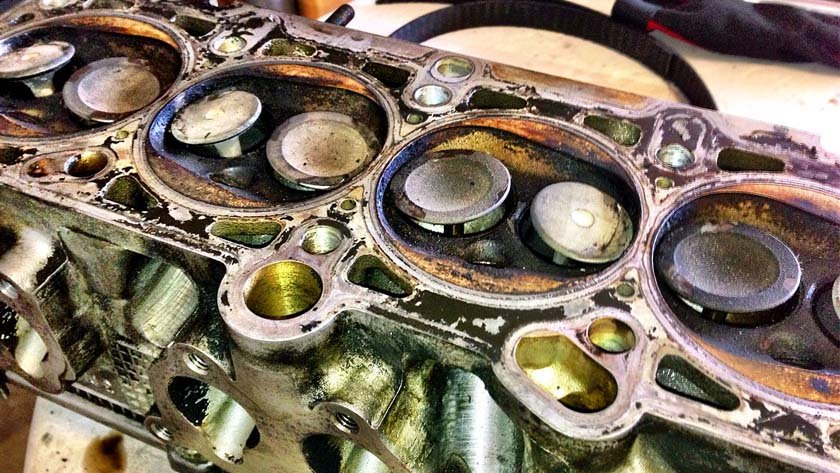Engine knocking:
Spark knock, also referred to as detonation, is a condition that is undesirable in a running internal combustion engine. This results in a knocking or ‘ting ting’ sensation which is as mild or as severe as a gale, analogous to marbles caught in a tin can.

This happens when the air-fuel mixture combusts prematurely, before the spark plug ignites it, due to several reasons: This happens when the air-fuel mixture combusts prematurely, before the spark plug ignites it, due to several reasons:
1. Low Octane Fuel:
A wrong choice of fuel leads to knocking as the high-octane fuel cannot be set on fire at an early stage.
2. Incorrect Ignition Timing:
If the air-fuel mixture ignites before the piston reaches the top of the compression stroke, then more than one power stroke may occur per revolution: Advanced ignition timing can cause knocking.
3. Carbon Deposits:
Carbon settles down on the piston crown, cylinder liner and spark plugs and forms hot spots that lead to premature combustion of the mixture.
4. High Engine Load:
When the load or revolutions per minute increases, the temperatures and pressures in the combustion chamber also increase and thus knocking intensifies if the fuel is of poor quality.
5. Excessive Cylinder Pressure:
Impurities such as fouled EGR or carbon buildup can cause cylinder pressures to rise thus result in knocking.
6. Incorrect Fuel Injection:
Abnormalities including wrong mix of fuel and air or bad supply of fuel by fuel injectors can cause knocking thus the need for efficiency in making adjustments to the engine.
To fix engine knocking:
Relieving knocking can be achieved by increasing antiknock quality through using high -octane gasoline.

1. Adjust Ignition Timing:
The best ignition timing settings observed from the manufacturers help in avoiding early ignition and thus eliminating knocking
2. Clean Carbon Deposits:
These carbon deposits are then wiped from crank cases, pistons, and other vital parts of an engine to reduce heat and knocking.
3. Check for Excessive Engine Load:
We anticipate that reduction of the engine load or avoiding high RPM can prevent knocking.
4. Inspect and Maintain Engine Components:
Often times when doing a routine check up, worn or damaged engine will be noticed and repaired which are some of the causes of knocking.
5. Address Fuel Injection Issues:
Carry out minor repair and cleaning of fuel injection systems for the right fuel/air mixture and suppression of knocking.
6. Consult a Mechanic:
If knocking lasts even after implementing all the mentioned measures for troubleshooting, then one should consult with a professional for remedial actions to be taken.
Pinging can lead to severe issues if not resolved immediately, it may lead to severe engine damage. Therefore it is vital to always engage in proper maintenance, select the right kind of fuel and follow all the operational guidelines when it comes to your engine to avoid its degeneration.
For any question Contact us
For more information visit our Facebook page https://www.facebook.com/profile.php?id=61560477510733
